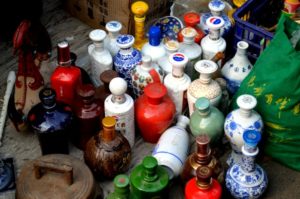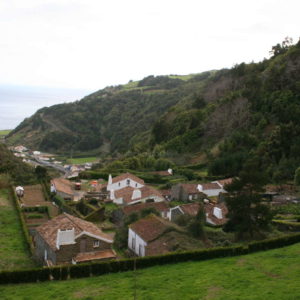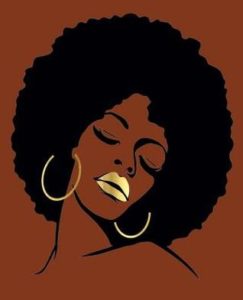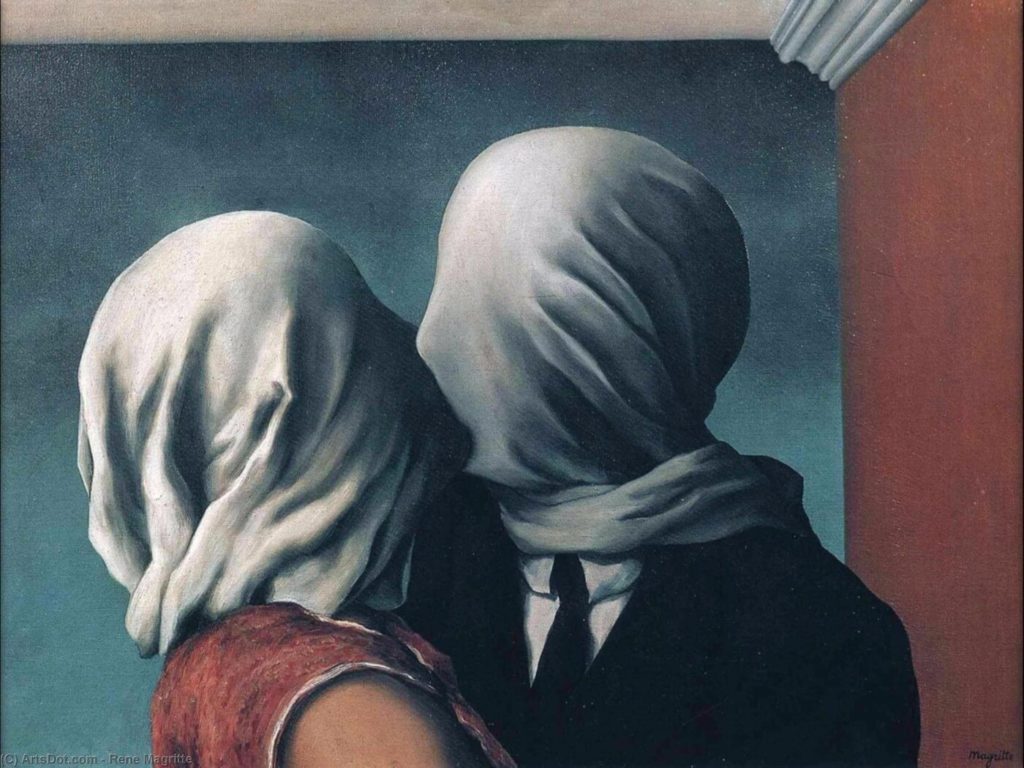-Written By Dr. Parijat De
(Reading Time: 10 min Approx)
It was a hot sultry afternoon. During the summer time in Papua New Guinea, the weather was unbearable. To add to the misery, in this island village of Ramotha, there were but few trees and very little plantation. Relief came only when it rained or when the cool summer breeze blew from across the sea a good time after the sundown.

Marthua, though, cares little for the weather. He lives life in his own terms, doesn’t make friends with people and passes time with his only companion, a viola. His abode in the outskirt of the village is a simple hutment, with simpler belongings inside – a 6′ X 4′ cot, a chair and a table, a low height stool, a stove, an icebox, some kitchen appliances, few utensils, cutlery and his favourite rocking chair which was always placed – come sunshine or rain – in a none too long verandah adjacent to his room.
 However, the first thing that’ll catch the eye of any visitor to his house – and visitors were mighty rare, only once in a blue moon one may say – is the great many number of bottles of rum and whiskey strewn all around. Marthua was a heavy drinker and used to pass all sixteen hours he used to be awake in a drunken state. He inherited a good sum of money from his grandfather who made a fortune in his youth by selling logs in Cairns. Marthua was brought up by his grandfather as he lost both his parents before he turned ten. His grandmother, a frail but handsome lady, gave him the care of his mother and taught him to play the viola before she died prematurely at fifty five.
However, the first thing that’ll catch the eye of any visitor to his house – and visitors were mighty rare, only once in a blue moon one may say – is the great many number of bottles of rum and whiskey strewn all around. Marthua was a heavy drinker and used to pass all sixteen hours he used to be awake in a drunken state. He inherited a good sum of money from his grandfather who made a fortune in his youth by selling logs in Cairns. Marthua was brought up by his grandfather as he lost both his parents before he turned ten. His grandmother, a frail but handsome lady, gave him the care of his mother and taught him to play the viola before she died prematurely at fifty five.

Marthua never went to school. But his grandmother taught him at home. He learnt how to sign his name. His grandfather taught him two things – how to swim and how to get a good catch of fish from the sea by riding a small trawler. Marthua was quick to pick up the trade and at this age of thirty-five, he was a maven at fishing. He’d go out in the sea once or twice in a month, and bring back a large haul of fish. His icebox was always packed with fishes of 4-5 kinds and a few essential vegetables like potato, onion, tomato, cabbage and the like.
 Ramotha had a sparse population, 30-40 families of nearly 200 denizens. Everybody knew everybody else but none liked Marthua. He was churlish, rather boorish, in his manners and in his ways of speaking. Almost invariably he will pick up a quarrel with someone he came by on his way to the Post Office – the only government outpost and the lone representative of the outside world, the so called civilised mainland. His doddering steps could be recognised from a distance and when close by, he really smelt foul, almost stank, for scarcely did he take his bath save the occasions when he went out fishing in the sea.
Ramotha had a sparse population, 30-40 families of nearly 200 denizens. Everybody knew everybody else but none liked Marthua. He was churlish, rather boorish, in his manners and in his ways of speaking. Almost invariably he will pick up a quarrel with someone he came by on his way to the Post Office – the only government outpost and the lone representative of the outside world, the so called civilised mainland. His doddering steps could be recognised from a distance and when close by, he really smelt foul, almost stank, for scarcely did he take his bath save the occasions when he went out fishing in the sea.
But Marthua was in love, in love with the most charming damsel of Ramotha, Nanthea. Nanthea was attractively tall, vivacious, and always talking nineteen to the dozen. Men of Ramotha called her a siren but dared not go near her. Nanthea was both a narcissist and a nymphomaniac rolled into a fleshy, luscious body at which men of Ramotha could only lewdly look at.
Nanthea entertained only white, wealthy foreigners from Bamaga across the Gulf of Papua. She bedded those who gifted her beautiful clothes and articles, beside large dollops of money. She lived with a slothful uncle and a termagant aunt. Like Marthua, her parents died long before she reached her puberty. Nanthea kept the family hearth burning and her uncle and aunt, quite understandably, turned a blind eye to her indulgences, her cravings for more and more sex and, of course, for money and other valuables.
The thirty odd families in Ramotha despised and avoided Nanthea. The womenfolk were normally not allowed to go near Nanthea’s house, let alone making friends with her.
Thus, for different reasons, Marthua and Nanthea both were pariahs in the consideration of the denizens of Ramotha.
Marthua learnt all about it in the post office a week back. Women were chuckling while the menfolk spewed venom on the siren, obviously pleased at the news. ‘Nanthea had developed AIDS’. Her promiscuity alone brought the ill luck upon her, was the opinion of all. They said, it was God’s retribution. The village assembly was to meet the next Sunday and decide upon Nanthea’s fate. She’ll have to be ostracized, said all. Better, if she left the shore of Ramotha for good. Her aunt lashed out her tongues at Nanthea to anyone she knew. That she must leave their home once the village assembly pronounced its decision on Nanthea was her solemn proclamation.
The assembly sat under the none-too-comfortable shades of two trees in the late Sunday afternoon with everyone attending . Marthua was leaning against a half-grown merbau, some twenty feet from the gathering. Nanthea stood a little distance away from where the people sat. She wore grass skirts and hung her face down. The village headman, three lanky old guys with wizened faces, didn’t take long to pass the verdict. Unless some family agreed to give Nanthea a shelter, she’ll be taken in a boat and left to fend for herself in the enormous, gushing streams of the Fly River and, finally, out into the high sea. Nobody spoke but everybody realised that she’d meet her Maker very soon, being torn to pieces and swallowed gluttonously by dugongs or whale sharks.
 Suddenly, all were jarred by a shriek from Marthua, “She’ll stay with me,” uttered with some effort.” Do you know what you’re saying?”, shouted a village elder in a shrill tone. “I’m very much in my senses. A village girl cannot be dumped just like that for doing something which many do in the civilised world without ever getting punished,” cried out Marthua. “She’s having AIDS and soon you’ll be affected too. Then we’ll throw both of you out in the Fly”, said one chieftain. “I don’t mind. A bunch of fools you’re. I’d not have AIDS for I’d never have sex with Nanthea. I just want to give her a new lease of life. She’ll live with me till I live”.
Suddenly, all were jarred by a shriek from Marthua, “She’ll stay with me,” uttered with some effort.” Do you know what you’re saying?”, shouted a village elder in a shrill tone. “I’m very much in my senses. A village girl cannot be dumped just like that for doing something which many do in the civilised world without ever getting punished,” cried out Marthua. “She’s having AIDS and soon you’ll be affected too. Then we’ll throw both of you out in the Fly”, said one chieftain. “I don’t mind. A bunch of fools you’re. I’d not have AIDS for I’d never have sex with Nanthea. I just want to give her a new lease of life. She’ll live with me till I live”.
Nanthea came rushing towards Marthua and threw herself at his feet. Marthua, with legs trembling, helped her stand up and patted in her back. Then, holding her hand rather firmly, he slowly walked towards his cottage, a good two furlongs away from the spot where Nanthea’s murder was plotted.
The two pariahs, as ordained by God, lived a very happy life ever after. But who outlived the other?


